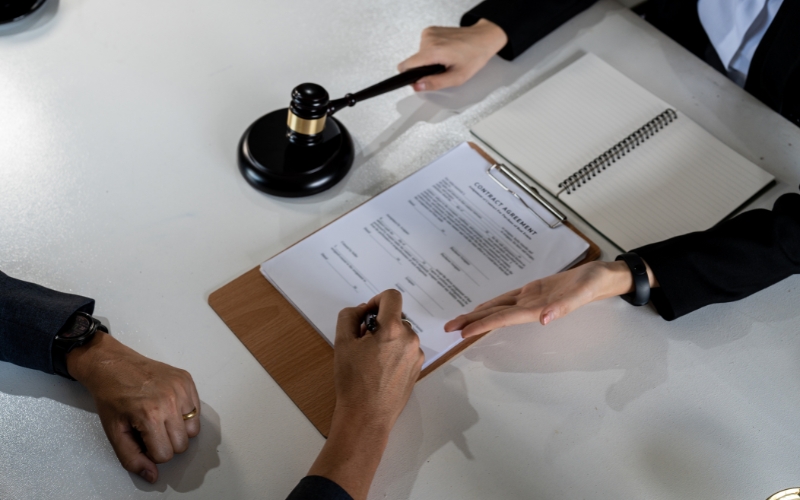- Understanding the Role of a Paralegal: What Law Firms Need to Know
- Identifying the Skills and Qualifications of a Successful Paralegal
- Crafting a Job Description to Attract Top Paralegal Talent
- Interviewing Paralegals: Questions to Ask and Red Flags to Watch
- Leveraging Recruitment Agencies to Streamline the Hiring Process
- Conclusion: Guide to Hiring Paralegals for Law Firms
Hiring the right paralegal is essential for law firms to maintain efficiency, manage caseloads, and ensure client satisfaction. A well-qualified paralegal not only provides legal support but also contributes to smoother case management and improved communication within the firm. However, identifying the right talent requires a strategic approach. This Guide to Hiring Paralegals explores the essential aspects of the hiring process, from understanding the role and necessary skills of paralegals to crafting effective job descriptions and conducting insightful interviews. Additionally, we highlight how partnering with recruitment agencies like JRG Partners can streamline the hiring process and align paralegal talent with a firm’s long-term goals.
Understanding the Role of a Paralegal: What Law Firms Need to Know

Hiring the right paralegal can be a game-changer for law firms, helping improve efficiency and reduce operational burdens. However, understanding the precise role of a paralegal is essential for law firms to fully leverage their skills. Paralegals serve as invaluable support professionals, performing a wide range of tasks that directly impact the smooth functioning of legal operations. This Guide to Hiring Paralegals explores their responsibilities, how they differ from other legal roles, and the ways in which they enhance firm productivity and client satisfaction.
Responsibilities and Boundaries of Paralegal Duties
Paralegals perform diverse tasks, but their responsibilities are often bounded by legal and ethical guidelines. They assist lawyers by conducting legal research, drafting legal documents, organizing case files, and managing schedules. Some of the most common tasks include preparing contracts, pleadings, affidavits, and other case materials. Paralegals are also involved in interviewing clients, collecting evidence, and coordinating with external parties, such as expert witnesses or court clerks.
However, paralegals are not authorized to provide legal advice or represent clients in court—those duties are reserved for licensed attorneys. Understanding this distinction helps law firms delegate appropriate tasks to paralegals, ensuring compliance with legal regulations. This Guide to Hiring Paralegals emphasizes that assigning the right responsibilities allows paralegals to function at their highest potential without overstepping professional boundaries.
Difference Between Paralegals and Other Legal Professionals
It’s common for law firms to confuse paralegals with other roles, such as legal assistants, but each has distinct responsibilities. Legal assistants generally handle administrative tasks like answering phones, scheduling meetings, and managing correspondence. While both roles are crucial to legal operations, paralegals have more specialized responsibilities, focusing on substantive legal work that requires an understanding of laws and procedures.
Additionally, law clerks—another legal support role—are often law students or graduates gaining practical experience before becoming licensed attorneys. Unlike paralegals, clerks may have limited interaction with clients and are often more focused on legal research or supporting individual cases under the guidance of senior lawyers.
By differentiating these roles, law firms can structure their teams effectively and ensure each professional’s expertise is utilized properly. This Guide to Hiring Paralegals further highlights how paralegals act as the bridge between the legal team’s core work and the necessary administrative operations, ensuring smooth coordination and improved efficiency.
How Paralegals Improve Law Firm Efficiency and Client Satisfaction
Paralegals play a critical role in boosting a law firm’s productivity by allowing attorneys to focus on more strategic legal tasks, such as case strategy, negotiations, and courtroom appearances. With paralegals handling research, documentation, and case preparation, attorneys can optimize their time and concentrate on high-value activities. This division of labor not only enhances overall efficiency but also improves the quality of legal services provided to clients.
Moreover, paralegals contribute to client satisfaction by acting as points of contact between the firm and its clients. They keep clients informed about case progress, address preliminary concerns, and ensure the timely delivery of documents and updates. Their ability to maintain accurate records and communicate effectively with clients fosters trust and improves the client experience.
In essence, paralegals are the backbone of a well-organized law firm, providing essential support that enhances the firm’s operational performance. This Guide to Hiring Paralegals emphasizes that law firms recognizing the value of paralegals and utilizing their skills effectively can significantly improve client outcomes and firm efficiency, ensuring long-term success in a competitive legal landscape.
Identifying the Skills and Qualifications of a Successful Paralegal

Hiring the right paralegal involves understanding the essential skills and qualifications that make candidates effective in this role. Paralegals provide crucial support to attorneys, so it is important to assess not only their technical abilities but also their interpersonal skills. In this guide to hiring paralegals, we explore the key skills paralegals must possess, relevant certifications and qualifications that enhance their expertise, and the importance of specialization in specific legal fields.
Key Skills: Legal Research, Document Drafting, Communication, and Organization
Successful paralegals excel in legal research and document drafting, as these are core functions of their role. In any Guide to Hiring Paralegals, it’s essential to highlight that they must know how to navigate legal databases such as LexisNexis or Westlaw to find case law, statutes, and precedents that support legal arguments. Alongside research, paralegals play a critical role in drafting legal documents, including contracts, affidavits, pleadings, and discovery requests. Attention to detail is essential to ensure accuracy and compliance with legal standards.
In addition to technical expertise, strong communication skills are paramount. A comprehensive Guide to Hiring Paralegals should emphasize that paralegals often serve as liaisons between clients, attorneys, and external stakeholders, meaning they need to convey information clearly and professionally. Effective written and verbal communication ensures smooth collaboration within legal teams and fosters positive client relationships.
Organizational skills are equally important for paralegals, who manage a variety of tasks, including case files, deadlines, and court schedules. A good paralegal must be adept at multitasking and prioritizing workloads, ensuring that every task is completed on time and accurately. These skills directly impact a firm’s efficiency, as delays or missed deadlines can jeopardize legal outcomes. Therefore, any Guide to Hiring Paralegals should not only assess these essential skills but also provide insights on how to evaluate them effectively.
To further enhance the hiring process, this Guide to Hiring Paralegals can also recommend incorporating practical assessments that test candidates on their research capabilities, document drafting skills, and communication proficiency. By following these guidelines, firms can make informed decisions that lead to successful hires.
Relevant Qualifications and Certifications
While formal education is essential, certifications from recognized organizations can elevate a paralegal’s credentials and demonstrate their expertise. Many paralegals hold a bachelor’s degree or an associate’s degree in paralegal studies or a related field. However, certifications offer an additional layer of credibility, as discussed in this guide to hiring paralegals.
Notable certifications include the Certified Paralegal (CP) designation from the National Association of Legal Assistants (NALA) and the Paralegal Advanced Competency Exam (PACE) offered by the National Federation of Paralegal Associations (NFPA). These certifications signify that a paralegal has undergone rigorous training and met industry standards for competence and professionalism.
Certifications in specialized areas, such as eDiscovery or legal technology, can also enhance a paralegal’s appeal to employers. In a competitive job market, firms increasingly seek paralegals with advanced knowledge in technology-driven processes. Therefore, having certifications in areas like compliance or data privacy makes candidates more attractive to law firms with specialized practices.
The Value of Specialization in Fields like Real Estate, Litigation, and Compliance
Specialization is becoming a growing trend in the legal industry. Law firms handling niche areas, such as intellectual property or real estate, often require paralegals with expertise in those fields. A paralegal with experience in real estate transactions, for instance, will be familiar with closing documents, title searches, and regulatory compliance, making them more effective in handling real estate cases.
Similarly, litigation paralegals must be well-versed in trial preparation, discovery procedures, and court filings. Their familiarity with litigation timelines and protocols helps attorneys build strong cases and manage client expectations. In compliance-related roles, paralegals help firms navigate complex regulatory landscapes by ensuring that corporate policies align with legal requirements.
In conclusion, hiring a paralegal with the right combination of skills, certifications, and specialization can significantly enhance a law firm’s efficiency. Paralegals bring value not only through their technical expertise but also through their ability to adapt to specialized practice areas. By focusing on these qualifications, as outlined in this guide to hiring paralegals, law firms can attract top talent and maintain a competitive edge in the legal market. Furthermore, this guide to hiring paralegals emphasizes the importance of making informed decisions to ensure that each hire contributes positively to the firm’s success.
Crafting a Job Description to Attract Top Paralegal Talent

A well-written job description plays a crucial role in attracting the right talent. For law firms, it’s essential to craft descriptions that accurately communicate the role, expectations, and benefits, setting the stage for a successful hiring process. A clear, detailed, and engaging job description not only helps firms attract qualified paralegal candidates but also ensures alignment between employer expectations and employee performance. Below, in this Guide to Hiring Paralegals, we explore key strategies for crafting a job description that stands out and appeals to top paralegal talent.
Start with a Clear Job Title and Brief Introduction
The job title should be precise, reflecting both the role and any specialization if applicable. For example, instead of a generic title like “Paralegal,” use “Corporate Litigation Paralegal” or “Real Estate Paralegal” to target candidates with specific expertise. A brief introduction should follow, giving candidates a quick overview of the firm’s mission, culture, and what makes it a unique workplace. This introduction sets the tone and helps attract candidates aligned with the firm’s values. This approach aligns with our Guide to Hiring Paralegals, ensuring you set the right expectations from the outset.
Define the Key Responsibilities and Day-to-Day Tasks
A detailed breakdown of the role’s responsibilities helps candidates understand the scope of the position. Use bullet points to list the primary duties, such as:
- Conducting legal research and drafting case documents.
- Managing case files and ensuring timely filing of court documents.
- Coordinating with attorneys, clients, and external stakeholders.
- Assisting with trial preparation, including organizing exhibits and witness lists.
This section should provide an accurate picture of what a typical day would look like. By being specific, firms can attract candidates with relevant experience and avoid misunderstandings about the role’s scope. Clear communication also reduces the risk of early turnover by ensuring that candidates know exactly what is expected from them, as highlighted in our Guide to Hiring Paralegals.
Outline Required Skills, Qualifications, and Certifications
This section should highlight the specific qualifications and skills that are critical for the role. For instance, if the position requires proficiency with certain legal software like Clio or Westlaw, mention it explicitly. Identify soft skills, such as attention to detail, strong communication abilities, and time management, that are essential for success in the role. Additionally, list any preferred certifications like the Certified Paralegal (CP) credential from NALA or expertise in specific legal practices (e.g., eDiscovery or corporate compliance). Being clear about expectations helps filter candidates and ensures only those with the right qualifications apply, a key point in our Guide to Hiring Paralegals.
Highlight Growth Opportunities and Career Advancement
Candidates today are not just looking for a job—they want a career path. Including information about potential growth opportunities makes the role more attractive to top talent. Mention if the firm offers mentorship programs, professional development, or pathways for advancement within the legal team. Highlighting these opportunities signals to candidates that the firm invests in employee growth, which can be a deciding factor for talented professionals looking for long-term career prospects, as suggested in the Guide to Hiring Paralegals.
Emphasize Compensation, Benefits, and Flexible Work Options
Competitive compensation and benefits packages are essential for attracting top talent, especially in a competitive legal market. Be transparent about salary ranges, as this can increase the likelihood of receiving applications from qualified candidates. Mention other perks, such as:
- Health insurance and retirement plans.
- Paid time off and vacation policies.
- Flexible work arrangements or remote work options.
With work-life balance becoming increasingly important, offering flexibility can set a firm apart from competitors. In addition to salary, other benefits such as professional development allowances, transportation stipends, or wellness programs can make the job more appealing. This comprehensive approach aligns with the strategies discussed in our Guide to Hiring Paralegals.
Interviewing Paralegals: Questions to Ask and Red Flags to Watch

The interview process is crucial for law firms seeking to hire skilled paralegals. A thorough interview helps assess a candidate’s technical abilities, soft skills, and suitability for the firm’s needs. As part of our comprehensive Guide to Hiring Paralegals, asking the right questions ensures that candidates possess the competencies required to handle legal tasks efficiently while fitting in with the firm’s culture. In this section of the Guide to Hiring Paralegals, we cover essential questions to ask during the interview, explore behavioral interview techniques to assess problem-solving abilities, and identify potential red flags that indicate the candidate may not be the right fit.
Key Interview Questions to Assess Technical and Soft Skills
Paralegals need a strong mix of technical expertise and interpersonal skills to excel in their roles. In our Guide to Hiring Paralegals, we outline important questions to evaluate these areas. Below are some key questions that can be helpful during the hiring process:
- Legal Research Skills: “Can you describe your experience with legal research tools like Westlaw or LexisNexis?”
This question helps determine whether the candidate is comfortable using specialized software and databases that are integral to legal work, as emphasized in our Guide to Hiring Paralegals. - Document Management and Drafting: “Walk me through how you typically prepare legal documents, such as pleadings or affidavits.”
This question assesses the candidate’s familiarity with legal document preparation and attention to detail, which are critical for the accuracy of legal filings, a point highlighted in our Guide to Hiring Paralegals. - Software Proficiency: “What case management software have you used, and how proficient are you with it?”
Many firms use tools like Clio or MyCase to streamline legal work. This question helps gauge the candidate’s ability to integrate with the firm’s existing technology systems, a consideration we discuss in our Guide to Hiring Paralegals. - Communication Skills: “Describe a situation where you had to communicate with a difficult client or external party. How did you handle it?”
This question reveals the candidate’s ability to maintain professionalism and resolve issues while working under pressure, which is essential for success as noted in our Guide to Hiring Paralegals. - Time Management: “How do you manage competing deadlines when working on multiple cases?”
Since paralegals often handle several tasks simultaneously, it’s essential to understand how well they prioritize and stay organized, a skill emphasized in our Guide to Hiring Paralegals.
Behavioral Interview Techniques to Assess Problem-Solving Abilities
Behavioral questions offer insight into how candidates approach challenges and resolve issues in real-world scenarios. Here are some examples from our Guide to Hiring Paralegals:
“Tell me about a time when you faced a sudden change or unexpected obstacle at work. How did you adapt?”
This question assesses adaptability, which is crucial in the fast-paced legal environment, where cases can shift direction quickly.
“Describe a time when you identified a mistake before it became a significant problem. What did you do?”
This helps gauge the candidate’s attention to detail and proactive attitude, both of which are critical in preventing costly legal errors.
“Give an example of how you handled a conflict with a colleague or attorney.”
Conflict resolution skills are essential for maintaining positive workplace relationships and ensuring smooth collaboration.
Behavioral questions provide insight into how candidates think on their feet and whether they can handle the demands of a busy law firm environment.
Red Flags to Watch for During the Interview
While evaluating the candidate’s responses, interviewers should also be mindful of potential warning signs. Here are some red flags to look out for, as highlighted in our Guide to Hiring Paralegals:
- Inconsistent Work History: Frequent job changes without clear explanations may indicate issues with commitment or adaptability. It’s essential to probe further to understand the reasons behind these transitions.
- Lack of Specific Examples: Candidates who struggle to provide concrete examples of past work may lack the experience they claim to have. Strong candidates should be able to draw from their previous roles to demonstrate their skills.
- Poor Communication or Professionalism: Paralegals represent the firm to clients and external parties. A candidate who demonstrates unprofessional behavior or poor communication during the interview may not reflect the firm’s standards when interacting with others.
- Unclear Understanding of the Role: If a candidate seems uncertain about the responsibilities of the position or the legal processes involved, it may indicate a lack of preparation or relevant experience. Strong candidates should have done their homework and be familiar with the firm’s expectations.
- Negative Attitude Toward Past Employers: Speaking negatively about former employers can indicate a lack of professionalism or difficulty in working within a team. Candidates with a positive, solution-focused attitude are typically better suited for collaborative environments.
Leveraging Recruitment Agencies to Streamline the Hiring Process

Recruiting top-tier paralegal talent can be challenging for law firms, especially when juggling multiple cases, tight deadlines, and administrative responsibilities. A Guide to Hiring Paralegals can greatly enhance a firm’s recruitment strategy by providing valuable insights and best practices for attracting the right candidates. Partnering with a recruitment agency like JRG Partners offers a strategic solution by streamlining the hiring process and ensuring that the firm’s talent needs are met efficiently. This section explores the benefits of working with specialized recruitment agencies, how they reduce time-to-hire by accessing a broader talent pool, and the importance of aligning hiring strategies with the firm’s long-term goals.
Access to a Broader Talent Pool and Specialized Expertise
Recruitment agencies, particularly those specializing in legal staffing, like JRG Partners, maintain extensive networks of qualified professionals. These agencies have access to both active job seekers and passive candidates who may not be available through traditional job boards. Passive candidates—professionals who aren’t actively searching but are open to new opportunities—are often the top performers in their field.
Agencies like JRG Partners also have experience placing paralegals in specific practice areas such as real estate, intellectual property, and corporate law. Their understanding of industry trends allows them to identify candidates with the right blend of skills and specialization, ensuring that the firm’s unique needs are met. Utilizing a Guide to Hiring Paralegals can further aid firms in pinpointing the ideal attributes to seek in candidates and enhancing their recruitment efforts.
Reducing Time-to-Hire and Improving Efficiency
Law firms often operate under tight timelines, making it difficult to dedicate resources to a lengthy recruitment process. Partnering with a recruitment agency significantly reduces the time-to-hire by streamlining candidate sourcing, screening, and interviewing.
Recruiters take care of time-consuming tasks such as posting job ads, conducting initial interviews, and verifying qualifications. This allows the firm to focus on reviewing only the most qualified candidates. Additionally, recruitment agencies have tools to expedite background checks and reference verifications, further accelerating the process.
By reducing the time-to-hire, law firms can fill vacancies faster, ensuring minimal disruption to their operations. A swift recruitment process is especially crucial for firms with a heavy caseload, where even a short-term vacancy can impact case management and client satisfaction. Referencing a Guide to Hiring Paralegals during this process can also help in making informed decisions more quickly.
Ensuring Long-Term Success by Aligning Talent with Firm Objectives
Effective hiring goes beyond filling immediate vacancies—it requires strategic alignment with the firm’s long-term goals. A Guide to Hiring Paralegals emphasizes the importance of identifying candidates who not only possess the required skills but also fit within the firm’s culture and growth strategy.
For instance, if a law firm aims to expand its real estate practice, recruiters can focus on finding paralegals with relevant experience in property law. Similarly, recruiters can assess candidates’ potential for career growth, ensuring they are aligned with the firm’s long-term objectives, such as becoming senior paralegals or moving into supervisory roles.
Agencies like JRG Partners conduct in-depth consultations with firms to understand their current and future needs, enabling them to recommend candidates who will contribute to both short-term productivity and long-term success. Utilizing a Guide to Hiring Paralegals throughout this process can facilitate a more targeted and effective hiring strategy.
Additional Benefits: Cost Savings and Market Insights
While there is an upfront cost to partnering with recruitment agencies, firms often save money in the long run by avoiding poor hiring decisions. Agencies mitigate the risk of hiring underqualified candidates by using rigorous screening methods. Additionally, recruiters provide valuable market insights, such as current salary trends and candidate expectations, helping firms remain competitive in attracting talent.
Conclusion: Guide to Hiring Paralegals for Law Firms
Hiring paralegals involves more than just filling a vacancy; it requires a thoughtful process to ensure candidates meet both technical requirements and cultural expectations. To assist law firms, this Guide to Hiring Paralegals outlines essential steps for an effective hiring strategy. Law firms benefit from understanding the paralegal role, identifying key skills and qualifications, and writing detailed job descriptions to attract the right candidates.
As highlighted in our Guide to Hiring Paralegals, conducting structured interviews helps firms evaluate candidates effectively and avoid common hiring pitfalls. For firms seeking a more efficient hiring process, partnering with specialized recruitment agencies, as discussed in the Guide to Hiring Paralegals, offers access to top talent and reduces time-to-hire. By following these best practices outlined in the Guide to Hiring Paralegals, law firms can build a strong legal support team, ensuring operational success and superior client service.


